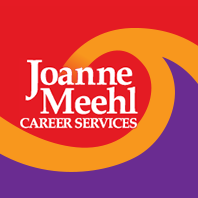What Your College Career Office Isn't Telling You
Posted:Dec 26th, 2010 1:12 amby: Joanne Meehl
They mean well, the counselors in your college career center. They do a good job of getting some recruiters in, and they maintain a wonderful database of previous graduates, they have alumni in to speak.
But where many fall down -- and I know this because I was guilty of this myself when I was in their role years ago -- is the lack of repeated direct contact with hiring managers, corporate recruiters, and HR, so that they keep up with how new grads should market themselves. They have a lot on their plate but they need to make the time for this direct-contact activity. Because this is something I do a lot of, I shape my comments around what those experts -- the ones with the jobs -- tell me that YOU, the candidate, need to know.
When I see some of the resumes that otherwise fine universities are creating for their college seniors, I cringe. In short, most of the resumes are about promoting the college, not the student. And they are static chronologies of internships and unrelated jobs, not marketing tools. New grads simply don't get their money's worth.
Even worse is when a graduate from earlier years goes back for help. I am working with a 2008 grad I'll call Sean who, in late 2010, went back to his GRADUATE school career office, and a senior counselor there kept Sean's education at the top of his resume, as if he were a brand-new grad. Unacceptable! The young man had had a professional job by now and THAT is what needs to be the focus of the reader's attention, not his education, which needs to be in its new home, at the end of the resume.
That senior counselor also made no effort to show any pattern in the Sean's budding career. He simply pasted in the jobs with no consideration of Sean's direction and focus. Worse, he left in Sean's college and summer jobs, which no longer had any direct bearing on his developing career and were taking up valuable space. So the resume was a hodgepodge. And in today's competitive market, that's exactly what Sean does not need.
The result for Sean: his old resume, over several months, landed him zero interviews. The new one he and I are now working on: it WILL land him interviews. And interviews lead to offers.
If only that counselor had, over the months and years in his job, taken "before" and "after" resumes and shown them to hiring managers and recruiters, he would have learned what works better. Or at least spent time talking with such folks at length.
What makes a resume "work"? It's when it communicates, by the middle half of page 1, what the person can do, and can do NOW. Sean's doesn't to that. Too many new grads' resumes don't do that. And that is such a shame. Companies and organizations out there are looking for great talent. But great talent still needs to market itself to the "buyer". This is where too many college career offices don't deliver.
Today's college career advisors need to show employers, students, and parents (the ones usually paying the huge tuition bills!) that they can take this new or recent grad and show them how to go out into the world and land their first great job. In order for college career counselors to do so, THEY have to know the way themselves. Any less than that, they're not doing their job or earning the salary -- for which you've already paid through your tuition.
So use them and expect a lot from them. They owe it to you.
______________________
See also my article about how college seniors can start NOW to do the work that will enable you to walk into a job upon graduation: http://exm.nr/collegeSrjobsearch, and my book for college seniors and recent grads, Yes, You Can Get That Job!
For a FREE booklet that maps recommended job search activity from January of your senior year through to June, send an email with the subject line "college booklet" to Joanne@TheJobSearchQueen.com.

Comments
Recent Posts
Blog Archive